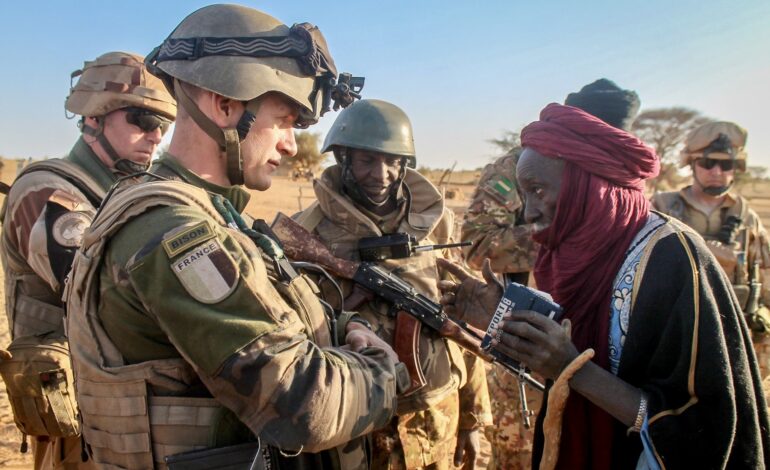
Faith Nyasuguta
France has revealed that it will begin withdrawing troops from Niger this week following a coup in the west African country, in what marks a turning point in western nations’ efforts to counter a decade-long Islamist insurgency in the Sahel region.
“We will begin our disengagement operation this week, in good order, safely and in coordination with the Nigeriens,” the French military headquarters said.
The logistics operation to move 1,500 French troops and large amounts of military equipment out of Niger by the end of this year comes a week after the French ambassador left Niger under pressure from the new military regime, which ousted the pro-Paris president, Mohamed Bazoum, on July 26.
Emmanuel Macron, the French president, said on September 24 that France would pull out troops because it would not be “held hostage by puschists”.
The ex-colonial power in Niger continues to support Bazoum, and officials in Paris said it was not possible to continue joint operations with Niger forces against insurgents when putschists were running the country. Macron has called the junta “the allies of disorder”.
As part of a wider fight against jihadists across the Sahel region, French troops have been in Niger with Paris at the forefront of operations against Islamist insurgents in the region for a decade.
Currently, the withdrawing troops face the organisational challenge of a rapid retreat. They would need cover to leave their exposed forward positions, the military headquarters said, possibly including air support from a larger force at an airbase outside the capital, Niamey.
Since the junta began demanding they leave, French troops in Niger have been living with uncertainty, with irregular food supplies and repeated anti-French protests outside the Niamey base.
The move to pull out leaves a hole in western efforts to counter an Islamist insurgency in the region and deals a blow to French influence that could allow Russia to expand its sway in the area. Until the coup, Niger had been the west’s last key ally in the central Sahel region south of the Sahara.
At the moment, the coup is seen as the latest serious threat to French strategy in the Sahel, after a number of military coups in other nations had already pushed Paris into rethinking its military presence and anti-jihadist mission.
2013 was the first time France deployed troops against jihadists in Mali, under the Socialist president François Hollande. However, in the past three years, several military coups in the region, as well as a continued jihadist presence, have exposed the limitations of the military strategy and forced France to scale back its presence and focus its efforts in Niger, with Bazoum as a firm ally.
A 2020 Mali coup led to a diplomatic standoff with France, which withdrew its troops last year. France also quit Burkina Faso after two coups last year brought in a junta that adopted a nationalist line. Both countries are former French colonies, where for years French troops had worked with the authorities to counter jihadists.
In September, Macron noted that he was “very worried” about the region, saying that jihadist attacks were causing dozens of deaths a day in Mali and such assaults had resumed in Niger.
Earlier in the year, Macron announced that France would reduce and reorganise its military footprint in Africa. He has vowed to break away from its former postcolonial policies on the continent and criticized the “crimes of European colonization”, pledging a “truly new relationship” between Africa and Europe.
Even after the African independence movements in the 1950s and 60s, Paris still intervened regularly in the domestic affairs of its former colonies and for decades retained sway through business and political ties under an unofficial policy known as “Françafrique”.
According to Macron, that era is over but acknowledged there was more to be done to boost Paris’s relationship with African countries.
RELATED:




